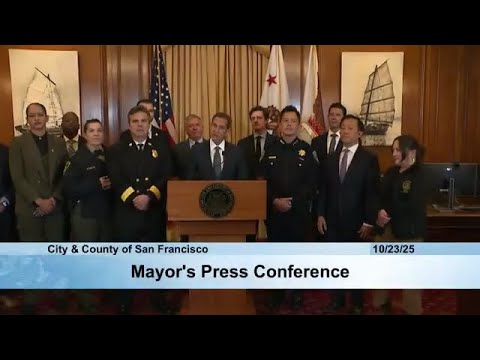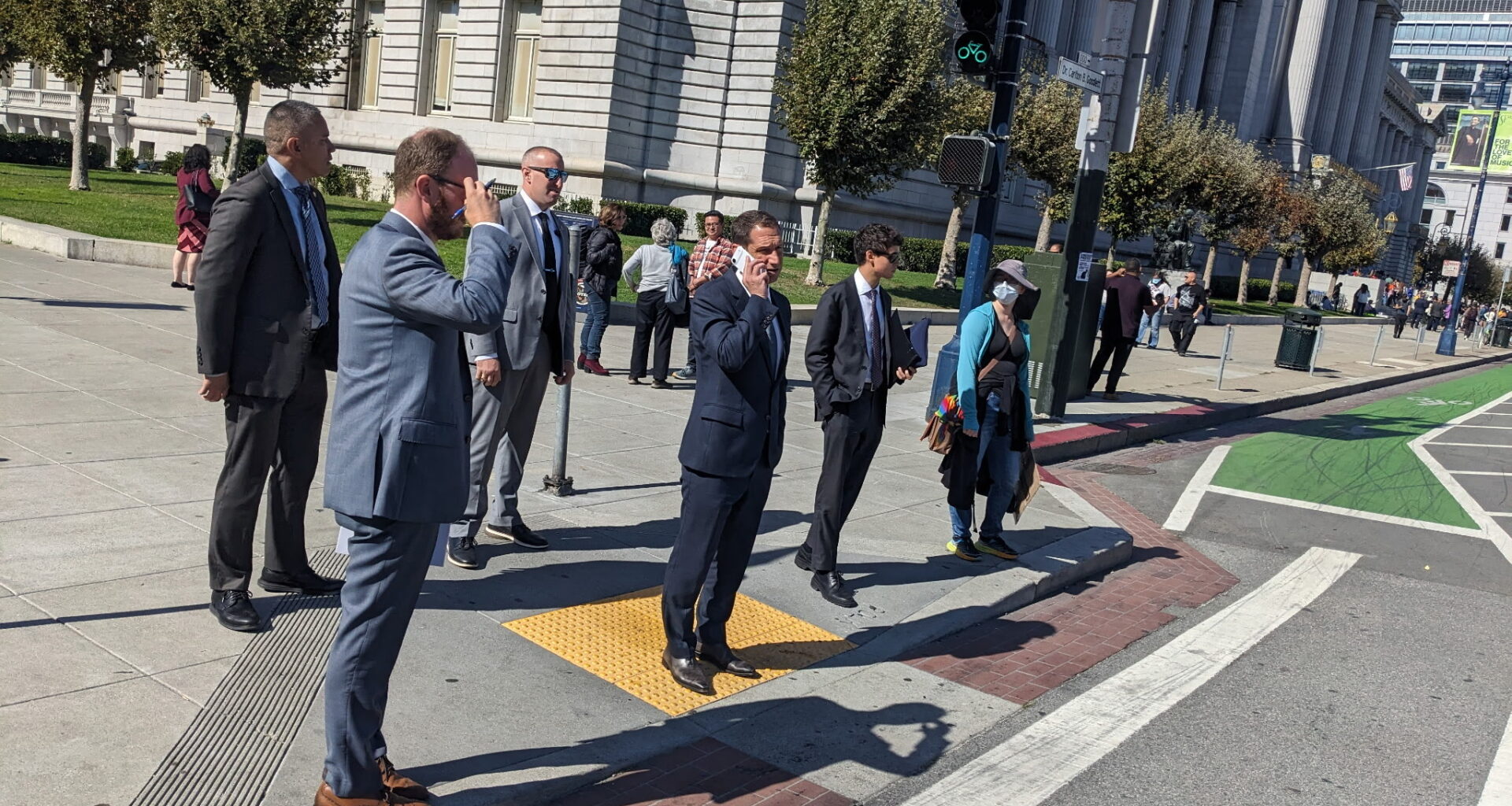The office of San Francisco Mayor Daniel Lurie is refusing to release records of his phone call with President Donald Trump that reportedly took place the evening of Oct. 22, a conversation that appeared to have halted a planned federal immigration enforcement surge in the city.
Lurie confirmed the call at a City Hall news conference Thursday, saying he had learned of the reversal only when Trump phoned him “late Wednesday night.” Asked whether he had offered any concessions, Lurie denied that any deals were made.
“He asked me for nothing,” Lurie said.
The Public Press sent a request under San Francisco’s Sunshine Ordinance and the California Public Records Act to the Office of the Mayor Sunshine Request Unit and the San Francisco NextRequest Public Records Portal for call logs, notes on the participants, briefing materials, memos, summaries or emails referencing the call, and written communications related to the call with federal officials including the White House or Department of Homeland Security.
In response, the mayor’s office provided a one-page summary of Lurie’s activities for Wednesday, which included the entry: “7:30 pm – 7:55 pm Phone Call with Donald Trump, President of the United States re: calling off potential federal deployment in San Francisco. Attendee: Donald Trump, President of the United States.”
The mayor’s office stated in an email that it had withheld all other related material “on the basis of attorney-client privilege.” The office said the request was now considered closed.
Under San Francisco’s Sunshine Ordinance, records that are easily identifiable and readily available must be produced immediately upon request. Legal experts with the First Amendment Coalition note that invoking attorney-client privilege to block disclosure of basic administrative records — such as call logs or scheduling notes — may violate open-government law unless those records genuinely contain or reveal legal advice. Typically, the privilege holds only when the conversation is between lawyer and client for legal advice. Once others join in, the confidentiality shield weakens.
The billionaire effect
Trump’s about-face followed a week of publicly threatening to send National Guard units to San Francisco, and as hundreds of federal agents assembled at the Coast Guard base in Alameda for an anticipated weekend enforcement surge targeting Bay Area cities.
The threats echoed deployments in Democratic-run cities like Los Angeles, Chicago and Portland, where he used federal law enforcement and the National Guard to assert control by invoking inaccurate violent-crime statistics and claiming the need for immigration enforcement.

On the Thursday morning, Trump posted on Truth Social that he had been “preparing to ‘surge’ San Francisco” with federal agents, but had changed his mind after speaking the previous evening with “friends of mine who live in the area,” including Salesforce CEO Marc Benioff and Nvidia CEO Jensen Huang, as well as Lurie, who “asked, very nicely, that I give him a chance.”
Earlier this month, Benioff drew backlash when he publicly urged Trump to deploy the National Guard to San Francisco to address crime and homelessness. His remarks were echoed by several high-profile tech figures, including David Sacks, Trump’s newly appointed “czar for artificial intelligence and cryptocurrency,” and venture capitalist Ron Conway, who also supported federal intervention before later lobbying privately against it, according to New York Times reporting. Benioff retracted and apologized a week later, saying he opposed troop deployment.
The Times said four people familiar with City Hall discussions — who spoke on condition of anonymity because they weren’t authorized to discuss the matter publicly — said Lurie quietly coordinated with powerful Silicon Valley figures to defuse the crisis. He and aides “power-mapped” tech leaders who could reach Trump directly to persuade him that the city was improving under Lurie’s leadership. These included Benioff, Huang, Conway and OpenAI CEO Sam Altman.
Critics questioned whether the mayor’s reliance on billionaire intermediaries reinforced perceptions of unequal access to power, and disparaged his statements that he was willing to welcome other federal law enforcement agencies, including the Federal Bureau of Investigation, Drug Enforcement Administration, Department of Alcohol, Tobacco and Firearms and the U.S. Attorney’s Office. In a press release about the call, Lurie stated that he would “welcome continued partnerships” with those entities.
That prompted pushback by Supervisor Jackie Fielder, whose district includes the Mission.
“I asked the mayor last night and again today to stop saying we welcome those agencies, because under Trump, they’ve been reassigned to immigration enforcement,” Fielder wrote in an Instagram post.
Related

